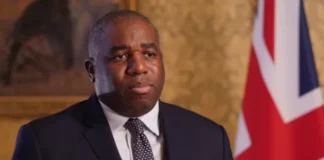By John Chola
The International Monetary Fund (IMF) has approved the fourth review of Zambia’s 38-month Extended Credit Facility (ECF), unlocking an immediate disbursement of US$184 million (SDR 138.8 million).
This brings total disbursements under the ECF-supported program to SDR 992.86 million equivalent to approximately US$1.3 billion, a significant milestone in Zambia’s ongoing economic stabilization efforts.
Support Amid Challenges
Deputy Managing Director and Acting Chair of the IMF, Nigel Clarke, acknowledged Zambia’s resilience amidst economic setbacks, including a historic drought that has significantly continued to impact agricultural and electricity output.
“Zambia’s performance under the ECF program remains satisfactory, demonstrating the government’s commitment to fiscal consolidation, structural reforms, and governance improvements,” said Clarke.
These efforts are essential in navigating macro-financial stability and building resilience against external shocks.
Finance and National Planning Minister Dr. Situmbeko Musokotwane expressed gratitude for the IMF’s continued support, emphasizing that the board’s decision reflects confidence in Zambia’s economic reforms.
“This approval is a clear endorsement of our home-grown economic transformation agenda aimed at restoring fiscal and debt sustainability, enhancing human development, and fostering investment to create jobs and wealth for our citizens,” he stated.
Focus on Fiscal Consolidation and Reforms
The Ministry highlighted Zambia’s commitment to fiscal consolidation, prudent monetary policies, and governance reforms to ensure sustained economic stability.
The government has outlined measures to expand the tax base, harmonize corporate income tax, and improve excise tax policies.
Additionally, enhanced transparency in state-owned enterprises and energy sector reforms are expected to boost efficiency and create fiscal space to protect the most vulnerable.
The IMF’s assessment noted that Zambia’s public debt is sustainable but remains at high risk of distress.
Progress on debt restructuring, including agreements with official bilateral and private creditors, has been integral to this outlook.
Over the medium term, Zambia is expected to transition to a moderate risk of external debt distress.
Strengthened Economic Resilience
Zambia’s ECF program, initially approved in August 2022 for US$1.3 billion, was augmented in July 2024 by 30 percent of the quota US$385.7 million.
This increase brought the total access to US$1.7 billion, supporting the Eighth National Development Plan.
The funds aim to bolster economic governance, stabilize macroeconomic conditions, and foster inclusive growth to improve livelihoods nationwide.
The government has pledged to address inflation, enhance public financial management, and safeguard social spending.
According to Dr. Musokotwane, the additional funds will enable Zambia to counter the effects of the drought, rebuild its hydro-dependent electricity infrastructure, and support both small and large-scale businesses affected by the economic downturn.
A Boost to Investor Confidence
The IMF’s endorsement is expected to enhance investor confidence, paving the way for increased foreign direct investment.
By demonstrating a sustainable debt trajectory and a commitment to economic reforms, Zambia aims to attract capital inflows that will drive its recovery and development agenda.
“As we continue on the path of economic reform, we remain steadfast in our goal to improve public financial management, ensure debt sustainability, and guarantee inclusive development for all Zambians,” Dr. Musokotwane said.
Outlook
With this latest disbursement, Zambia reinforces its position as a reform-oriented economy striving to overcome internal and external challenges.
The government’s determination to meet program targets underscores its readiness to achieve long-term stability, strengthen resilience, and unlock the country’s full potential.



